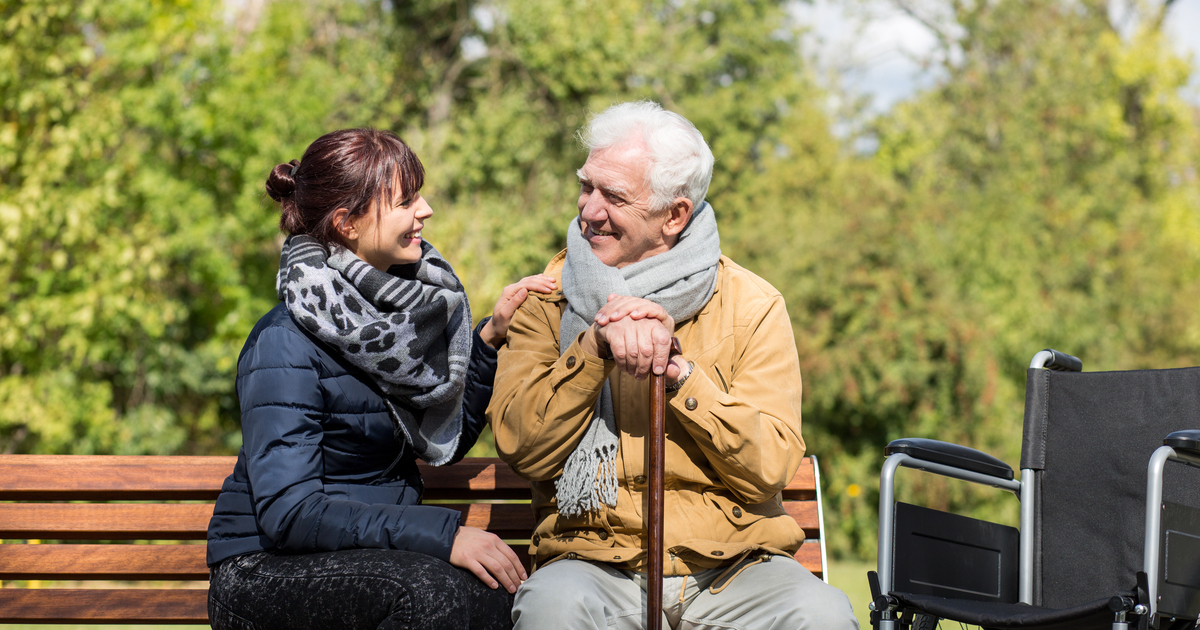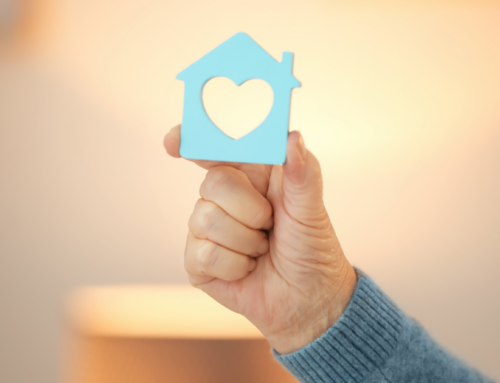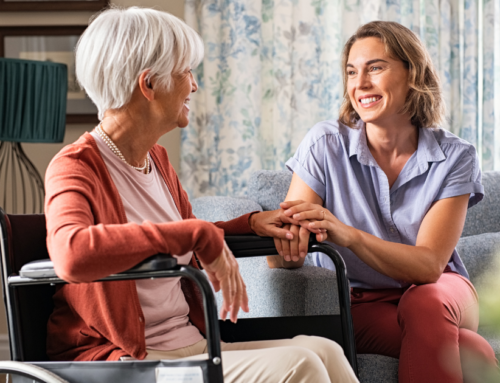Being a caregiver can be a little bit like being on a roller coaster. There are exhilarating ups followed by disheartening downs. For a caregiver, this is a very natural phenomenon, not easy but natural. Let’s take a look at what some of the ups and downs are.
The Ups of Being a Caregiver
- Giving back. It can be very fulfilling to be there for someone that has been there for years for you, such as an aging parent. Though relationships may have been strained over the years, it feels good to give help and support in the manner that you’d like to receive it in the future.
- Renewed closeness. As you spend time with an older parent, you and your siblings have the chance to share memories and new stories together. Sitting side-by-side and looking at old photos can be fun and allows you to spend quality time together.
- Recalling the ‘good ole days.’ Playing some of your parent’s favorite music or watching their favorite movies together gives you a chance to share vivid memories about what was happening in their life when they were listening to a favorite song or going to a favorite movie. This often brings about a few tears, a laugh or two, or even a nice hug.
- Your personal growth. Caregiving can bring out the best in you as you care for another person. Developing deeper empathy is a significant benefit of caregiving as you see the aging process your loved one is experiencing. You also get to consider what your life will be like as you age, which is a growing experience.
- Staying at home. It’s gratifying as a caregiver to know that your care allows your loved one to stay at home and not be placed in a nursing home. Being a family member, you’re well qualified to care for them because you love and understand them.
- Medical appointments. Being a caregiver allows you to be present at medical appointments for your loved one, which is a safeguard for an aging parent’s health as their memory diminishes and they may not fully understand what the doctor told them.
The Downs of Being a Caregiver
- Dependency. Your loved one may become resentful or depressed about being dependent on you for the care that they need. Resistance on their part can make it more challenging for you to provide the necessary care.
- Your plans and schedule. As a caregiver, you often have to put your life on hold as you care for your loved one. You often can’t pursue your personal interests or take the breaks you need because you have to be physically present for a parent or family member.
- Stress. It can be mentally stressful being a caregiver, as well as physically demanding. This can affect your health as you find yourself unable to care properly for yourself by having the right amount of exercise and sleep. This can also lead to “caregiver burnout,” which necessitates finding someone else to fulfill your caregiving responsibilities as you recover.
- Watching changes. Watching a loved one experience declining health can evoke feelings of sadness, which can lead to depression. It’s not easy to see a parent become unable to do the things for themself that they could do when they were younger.
Like anything in life, there are ups and downs as a caregiver. Support groups exist to help a caregiver when they find themselves stuck with being consistently down and challenged.
At Home Instead, our carefully screened aides can assist you with the care of your loved one. Our agency’s mission is lifting the spirits of those we serve by offering them dependable and affordable home care options. To learn more about Home Instead Senior Care or to schedule a FREE consultation for a senior in Naples, Fort Myers, Charlotte County, or the surrounding areas today, please visit us at www.homeinsteadswfl.com.




